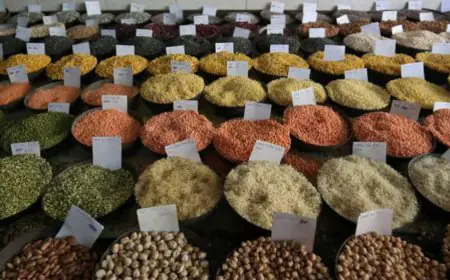Is India Ready To Lead The Protein Revolution? Here's What It Needs To Make It Happen
The rise of alternative proteins in India could be the key to a healthier, more sustainable future.

When Huber's Butchery in Singapore made headlines as the world's first butcher shop to sell cultivated chicken from GOOD Meat in 2023, it wasn't just a game-changer in food tech-it was a glimpse into the future of sustainable eating. Shoppers browsing the familiar butcher displays found meat that had never seen a farm, grown directly from animal cells in bioreactors. It was a clear sign of a shift away from traditional protein sources, which are linked to animal slaughter, carbon emissions, and the overuse of resources like land, water, and feed. While countries like Singapore are taking bold steps in the smart protein space, the big question is: can India - home to diverse agriculture, a talented workforce, and rising protein demands - lead the charge to become the protein powerhouse of the future?
Also Read: What India Needs To Become The Protein Powerhouse Of Future

India is a nation obsessed with carbs-rice, roti, and dal dominate most meals-so protein often takes a backseat. Despite significant advancements in food production, with food grain output reaching 269 million metric tonnes, the focus has mainly been on meeting calorie needs, not nutritional balance. More and more, studies are showing the drawbacks of relying on animal-derived proteins-think saturated fats, cholesterol, and the lack of dietary fibre. Enter smart proteins-plant-based, fermented, or cultivated options - that offer a nutrient-packed solution to meet our protein needs.
India is seeing a surge in smart protein startups, with over 100 companies working to develop alternative proteins. The market is already buzzing with 545 different products, ranging from plant-based meat to dairy alternatives, available both in stores and online. This growing presence is a sign that consumers are beginning to embrace alternatives, driven by health concerns, sustainability, and ethical choices. On a global scale, the alternative protein market is expected to hit $15.7 billion in 2024, with a growth rate of 9.9%, reaching $25.2 billion by 2029. With India's growing middle class, urbanization, and rising health consciousness, it's clear that the country has a real shot at becoming a leader in the future protein market.
Also Read: New Research Finds Plant Protein To Be A Heart Health Booster
India's agricultural strength-especially its vast range of native crops like millets and legumes-could play a big role in developing affordable, locally sourced alternatives that cater to the Indian palate. Cutting-edge tech, like precision fermentation (which uses microbes to produce proteins like non-animal whey), is making it possible to create animal-like proteins without the environmental toll. Similarly, biomass fermentation (using fungi to produce nutrient-rich protein) is gaining traction as a scalable solution. By doubling down on research and innovation in plant-based proteins and fermentation technologies, India could create high-quality, affordable protein products that are accessible to everyone.
The Indian government is on board too, with policies like BioE3, the Karnataka Biotechnology Policy, and funding for smart protein research showing a clear commitment to solving food security, sustainability, and climate challenges. With smart investments in R&D, production subsidies, and initiatives to boost local crops for plant-based proteins, the government can play a crucial role in turning this emerging sector into a mainstream success.
That said, there are still hurdles. Consumer awareness is low - only 27% of early adopters know about plant-based meats, and just 11% have tried them. To push this sector forward, there's a big need for education on the health and environmental benefits of smart proteins, as well as overcoming barriers like taste and affordability. Luckily, advances in texturization and extrusion are already making plant-based meats taste and feel more like the real thing. Plus, innovations in nutrition are ensuring that these alternatives can match, or even beat, traditional meat in protein content. But the sector still needs more investment and exploration into cutting-edge technologies like 3D printing, electrostatic spinning, and shear cell tech to really perfect the texture and flavour of plant-based meats.
With the right mix of innovation, investment, and consumer education, India has the chance to lead the global transition to smarter, more sustainable protein solutions that are better for our health and the planet.
Disclaimer: The opinions expressed within this article are the personal opinions of the author. NDTV is not responsible for the accuracy, completeness, suitability, or validity of any information in this article. All information is provided on an as-is basis. The information, facts or opinions appearing in the article do not reflect the views of NDTV and NDTV does not assume any responsibility or liability for the same.
What's Your Reaction?











































